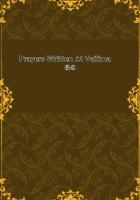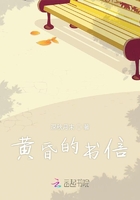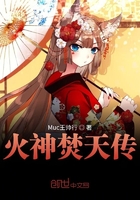He would not have cared much for that, if it had not been for some stern and startling realities which interrupted his poetic dreams. Alas, that romanticism is not very quick at accounts, and that feudalism ever since Don Quixote, reckons without its host! Frederick William IV. partook too much of that contempt of ready cash which ever has been the noblest inheritance of the sons of the Crusaders. He found at his accession a costly, although parsimoniously arranged system of government, and a moderately filled State Treasury. In two years every trace of a surplus was spent in court festivals, royal progresses, largesses, subventions to needy, seedy, and greedy noblemen, etc., and the regular taxes were no longer sufficient for the exigencies of either Court or Government. And thus His Majesty found himself very soon placed between a glaring deficit on one side, and a law of 1820 on the other, by which any new loan, or any increase of the then existing taxation was made illegal without the assent of "the future Representation of the People." This representation did not exist; the new King was less inclined than even his father to create it; and if he had been, he knew that public opinion had wonderfully changed since his accession.
Indeed, the middle classes, who had partly expected that the new King would at once grant a Constitution, proclaim the Liberty of the Press, Trial by Jury, etc., etc.--in short, himself take the lead of that peaceful revolution which they wanted in order to obtain political supremacy-the middle classes had found out their error, and had turned ferociously against the King. In the Rhine Provinces, and more or less generally all over Prussia, they were so exasperated that they, being short themselves of men able to represent them in the Press, went to the length of an alliance with the extreme philosophical party, of which we have spoken above. The fruit of this alliance was the Rhenish Gazette of Cologne, [1] a paper which was suppressed after fifteen months' existence, but from which may be dated the existence of the Newspaper Press in Germany. This was in 1842.
The poor King, whose commercial difficulties were the keenest satire upon his Mediaeval propensities, very soon found out that he could not continue to reign without ****** some slight concession to the popular outcry for that "Representation of the People," which, as the last remnant of the long-forgotten promises of 1813 and 1815 had been embodied in the law of 1820. He found the least objectionable mode of satisfying this untoward law in calling together the Standing Committees of the Provincial Diets.
The Provincial Diets had been instituted in 1823. They consisted for every one of the eight provinces of the kingdom:--(I) Of the higher nobility, the formerly sovereign families of the German Empire, the heads of which were members of the Diet by birthright. (2) Of the representatives of the knights, or lower nobility. (3) Of representatives of towns. (4) Of deputies of the peasantry, or small farming class. The whole was arranged in such a manner that in every province the two sections of the nobility always had a majority of the Diet. Every one of these eight Provincial Diets elected a Committee, and these eight Committees were now called to Berlin in order to form a Representative Assembly for the purpose of voting the much-desired loan. It was stated that the Treasury was full, and that the loan was required, not for current wants, but for the construction of a State railway. But the united Committees gave the King a flat refusal, declaring themselves incompetent to act as the representatives of the people, and called upon His Majesty to fulfil the promise of a Representative Constitution which his father had given, when he wanted the aid of the people against Napoleon.
The sitting of the united Committees proved that the spirit of opposition was no longer confined to the bourgeoisie. A part of the peasantry had joined them, and many nobles, being themselves large farmers on their own properties, and dealers in corn, wool, spirits, and flax, requiring the same guarantees against absolutism, bureaucracy, and feudal restoration, had equally pronounced against the Government, and for a Representative Constitution. The King's plan had signally failed; he had got no money, and had increased the power of the opposition. The subsequent sitting of the Provincial Diets themselves was still more unfortunate for the King.
All of them asked for reforms, for the fulfilment of the promises of 1813 and 1815, for a Constitution and a Free Press; the resolutions to this effect of some of them were rather disrespectfully worded, and the ill-humored replies of the exasperated King made the evil still greater.
In the meantime, the financial difficulties of the Government went on increasing. For a time, abatements made upon the moneys appropriated for the different public services, fraudulent transactions with the "Seehandlung," a commercial establishment speculating and trading for account and risk of the State, and long since acting as its money-broker, had sufficed to keep up appearances; increased issues of State paper-money had furnished some resources; and the secret, upon the whole, had been pretty well kept.
But all these contrivances were soon exhausted. There was another plan tried: the establishment of a bank, the capital of which was to be furnished partly by the State and partly by private shareholders;the chief direction to belong to the State, in such a manner as to enable the Government to draw upon the funds of this bank to a large amount, and thus to repeat the same fraudulent transactions that would no longer do with the "Seehandlung."















